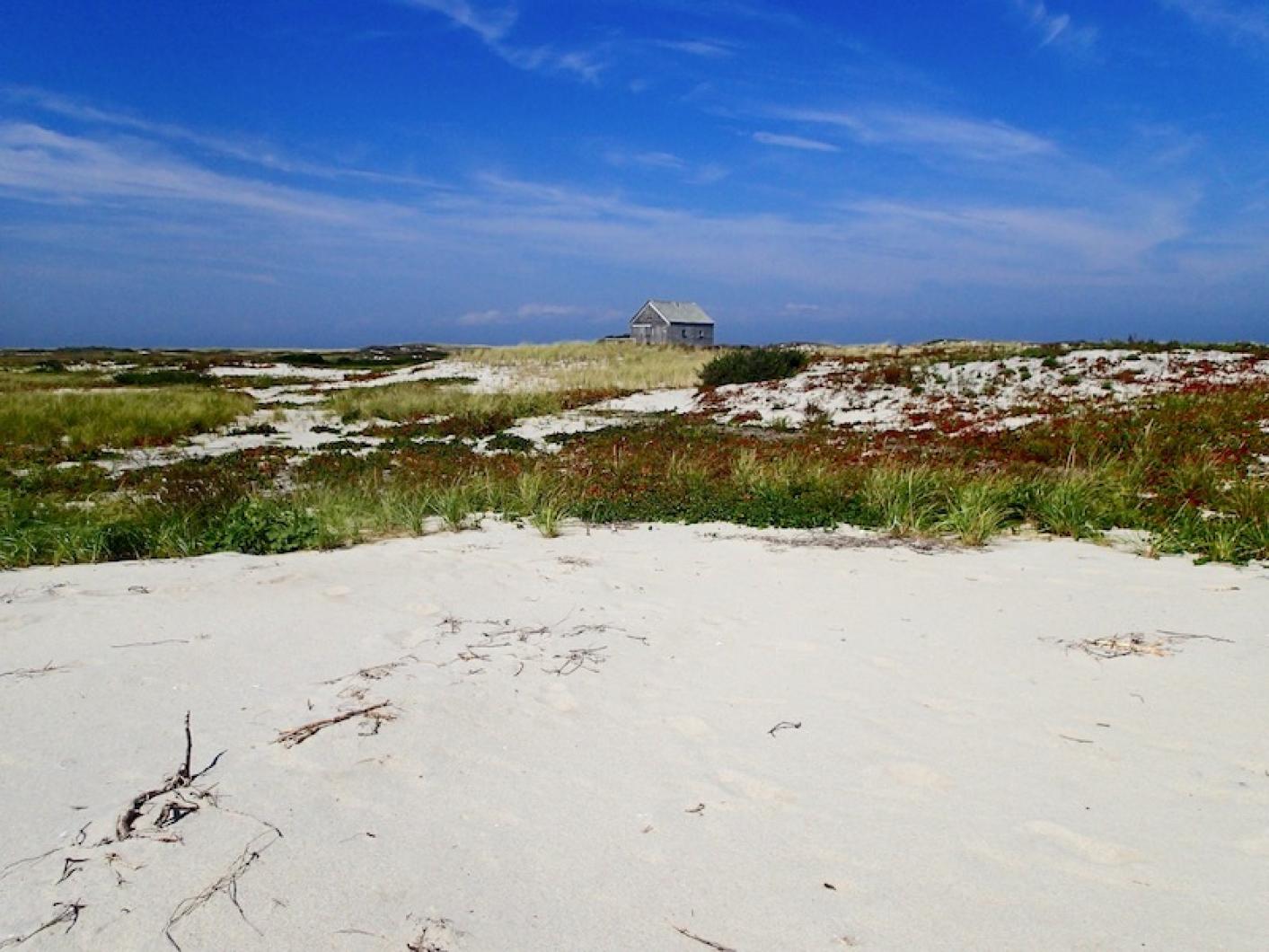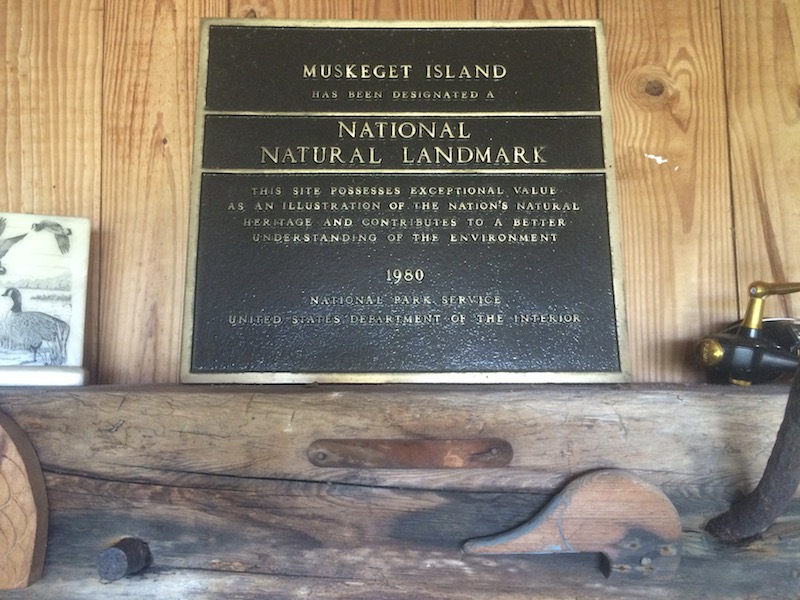Crocker Snow Jr. remembers vividly the first time he set foot on Muskeget island. The 250-acre stretch of sand and scrub brush forms the westernmost tip of Nantucket, on the other side of Muskeget Channel off Chappaquiddick. Mr. Snow’s father acquired most of the remote island in 1949 for $12,000 from the family that owned it, to use as a duck hunting, fishing and nature refuge. Crocker Snow was nine years old when his father landed his small plane on a makeshift airstrip and dropped him off with a friend.

“I had my best friend,” Mr. Snow told an overflow crowd in the Gazette newsroom Tuesday night. “He landed on the sand, dropped us and said I’ll be back in a couple of hours. It doesn’t sound that dramatic but it kind of was that dramatic for us as nine-year-olds. That was my introduction to Muskeget.
“He did come back.”
The two youngsters spent most of their time fending off herring gulls, which at the time inhabited one of the largest breeding rookeries on the East Coast there, he said. But the seed was planted, and it has stayed with him since. The family, which today owns the island in partnership with the Nantucket Land Bank, maintains a small camp on Muskeget, the only one of seven structures to survive years of hurricanes and harsh weather.
“I’ve been going to the island three or four times a year,” said Mr. Snow, a journalist by profession who lives in Ipswich and has written several books. “It’s an important part of my life and my spirit and my soul. I’ve had some tremendous adventures there of all kinds.”
Mr. Snow spoke about his adventures and his stewardship of Muskeget as part of the Vineyard Gazette’s Tuesdays in the Newsroom lecture series. He chronicled how different species have ebbed and flowed like the tides, subject to the vagaries of nature, man and regulation by local, state and federal governments.
“It’s fascinating how the waves of different species take it over, and why,” Mr. Snow said. “You see it and think why is this happening. You think is the species changing the island or is the island changing the species? I’m still not coming to a complete decision about that, because the island is changing as rapidly as the species.”
One thing he knows for certain: the island was much bigger on the day he first set foot on it as a nine-year-old boy than it is today. Muskeget has eroded over the years and is migrating eastward, he said.
Mr. Snow is most concerned about the latest shift in the nature of the island, an inundation of gray seals. Once thought extinct, the carcass of a gray seal was discovered on Muskeget in 1964, according to Mr. Snow, the first sign the species had survived. The seals gained protection under the Marine Mammal Protection Act, enacted in 1972, and rapidly reestablished a foothold in the waters surrounding New England.
“It was fun to see them,” Mr. Snow said. “There might be 20, there might be 30. It was a nice thing to have around. They started getting more and more. Within five years it was up to 200 to 250.”
He said at least one scientist who was studying the resurgence of the gray seals estimated there would never be more than 1,000 of the enormous animals, which can weigh up to 800 pounds, on Muskeget.
But the scientist was wrong. “Today there are roughly 10,000,” Mr. Snow said. “They absolutely overwhelm the island during the breeding time. Mid-January to the end of February is what I call the seal riot.”
He is concerned about the impact of the seal population on other species, including rare animals and plants which inhabit Muskeget and nowhere else on earth, including a coastal vole. The vole was nearly wiped out some years ago during a period when cats were briefly introduced on the island, but the cats are gone now and the voles have recovered, Mr. Snow said.
It was one of many lessons recounted about the unintended consequences of interfering with natural ecosystems.
Or in the case of the gray seal, not interfering. Unintended Consequences is the title of a documentary Mr. Snow has produced that raises an alarm about the naturally burgeoning gray seal population — which is protected from its apex predator the great white shark due to naturally occurring shoals around the island. Also protected under federal law, the seals are now flattening fragile dunes and beach grass and migrating into the island’s only freshwater pond, which is vital to other plants and animals, Mr. Snow said. Some gray seals have been found to carry avian flu, potentially creating a new threat.
Mr. Snow said he is working with federal officials to explore ways to mitigate the growing colony, but has had little success.
And he said the exploding numbers of gray seals is a problem Martha’s Vineyard will have to deal with soon.
“They’re sure as hell coming your way, there’s no question,” he said. “Obviously they have attracted more and more great white sharks.”
Despite the tribulations of the seal colony, and the difficulty of getting to the tiny island, Mr. Snow said Muskeget still holds an almost mystical allure for him and his family.
“If you get there you care about it. It is special. I can’t explain it,” he said.








Comments
Comment policy »